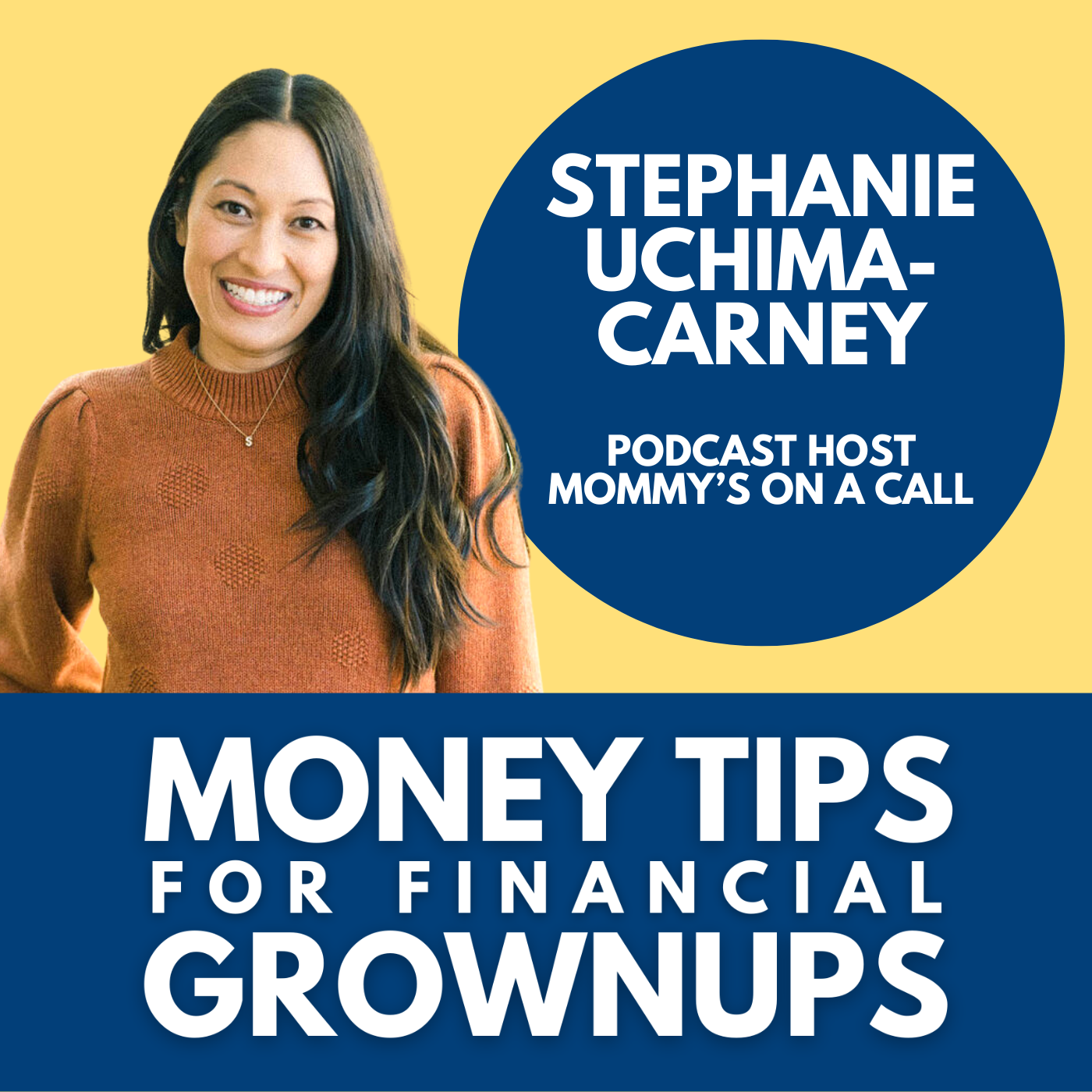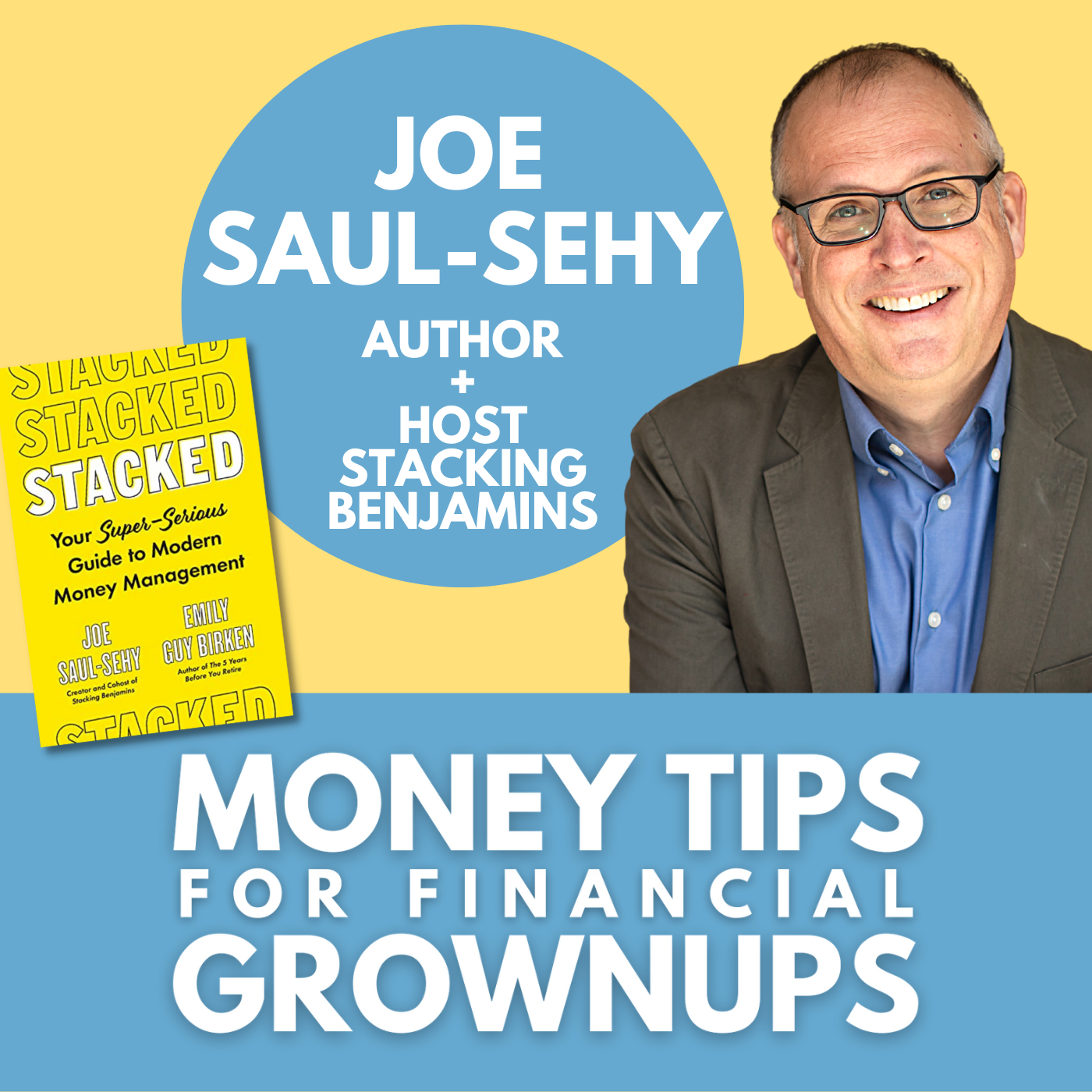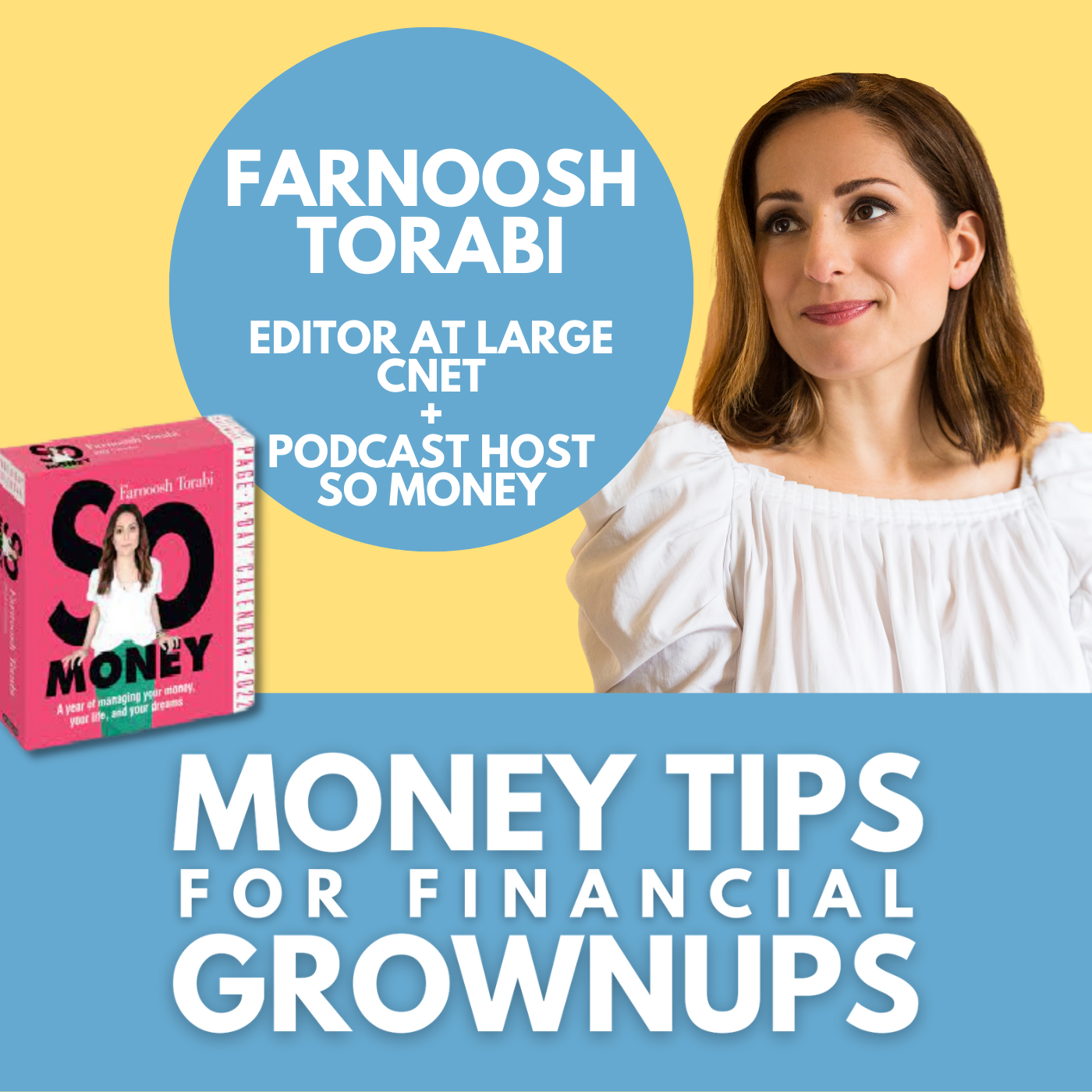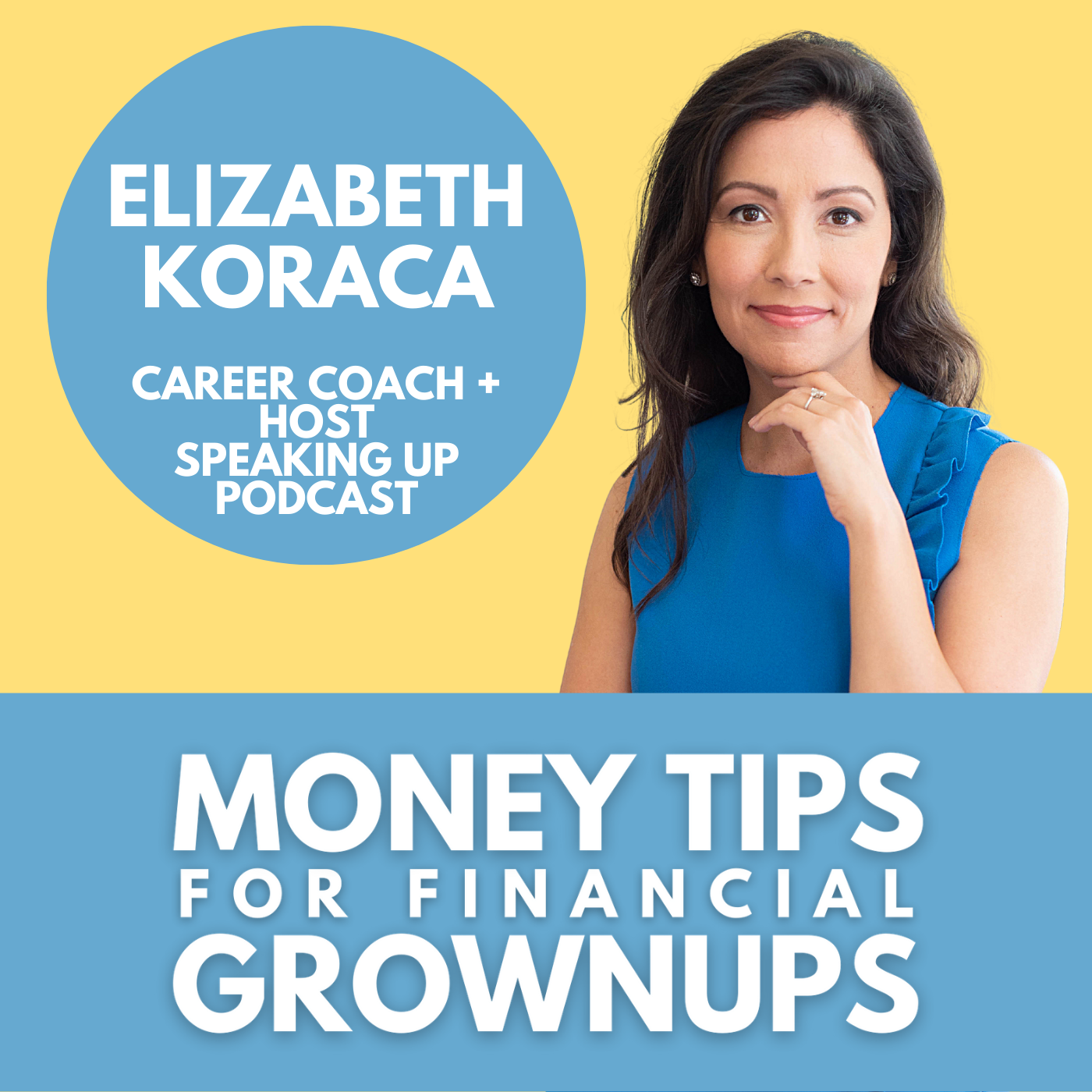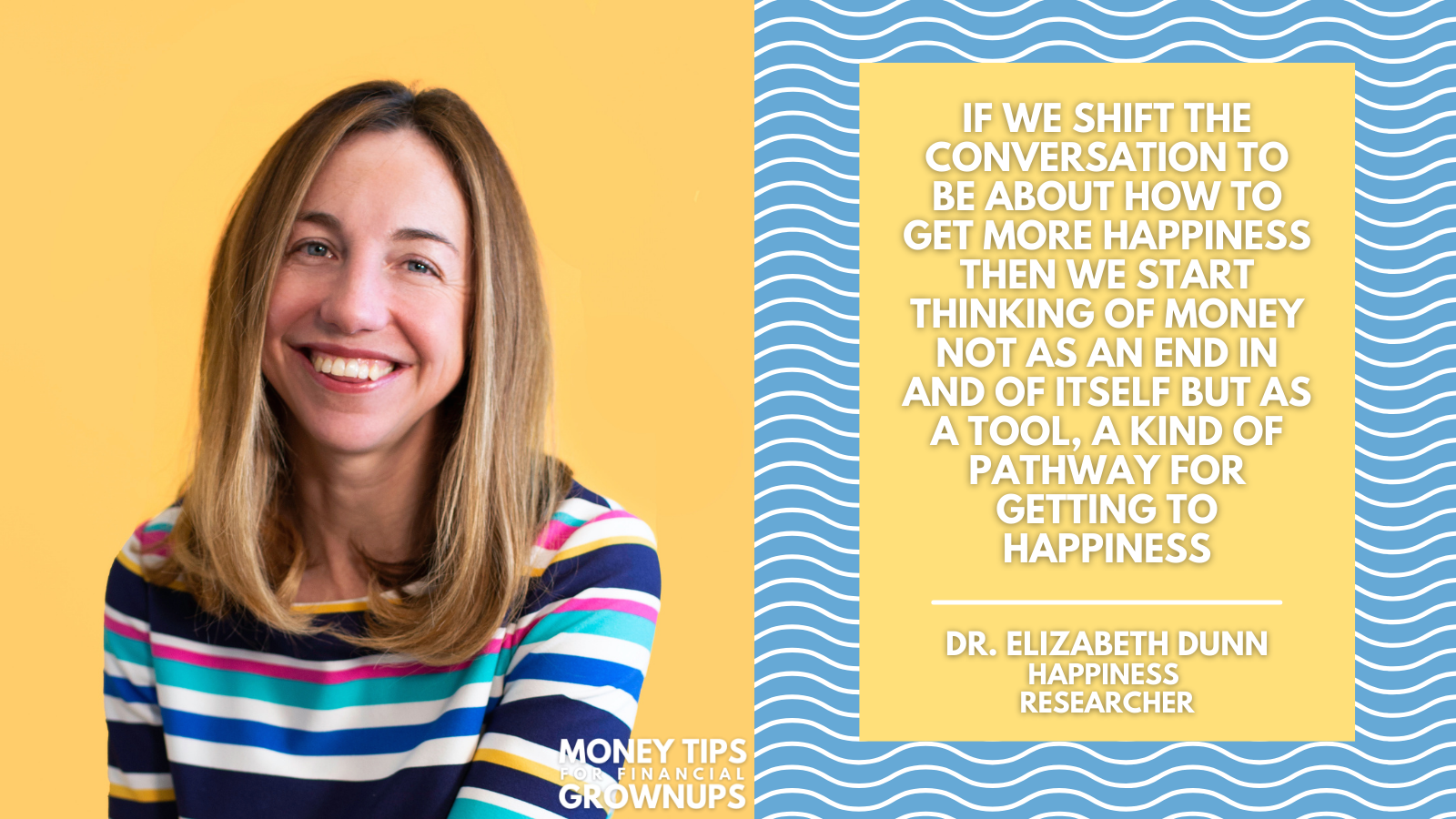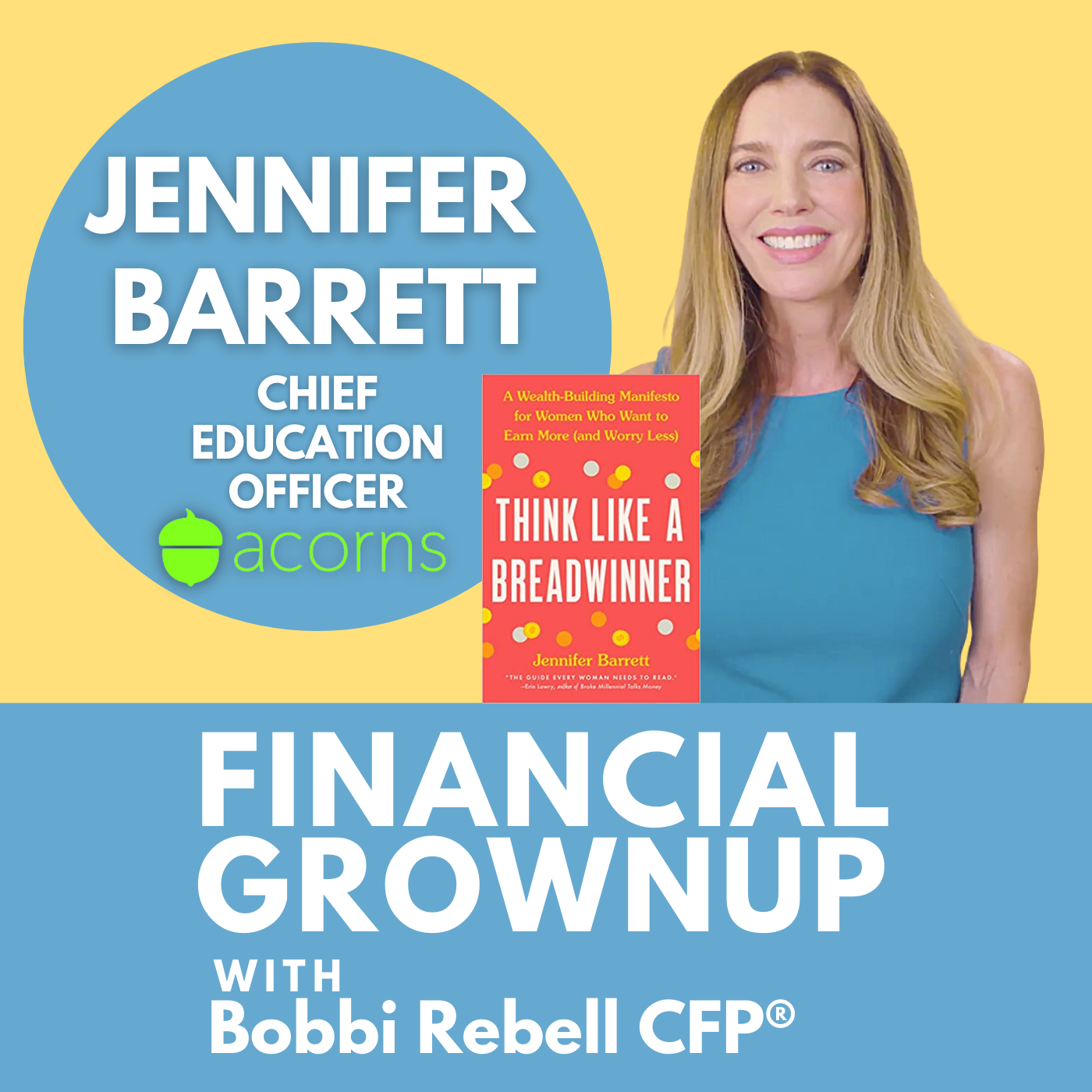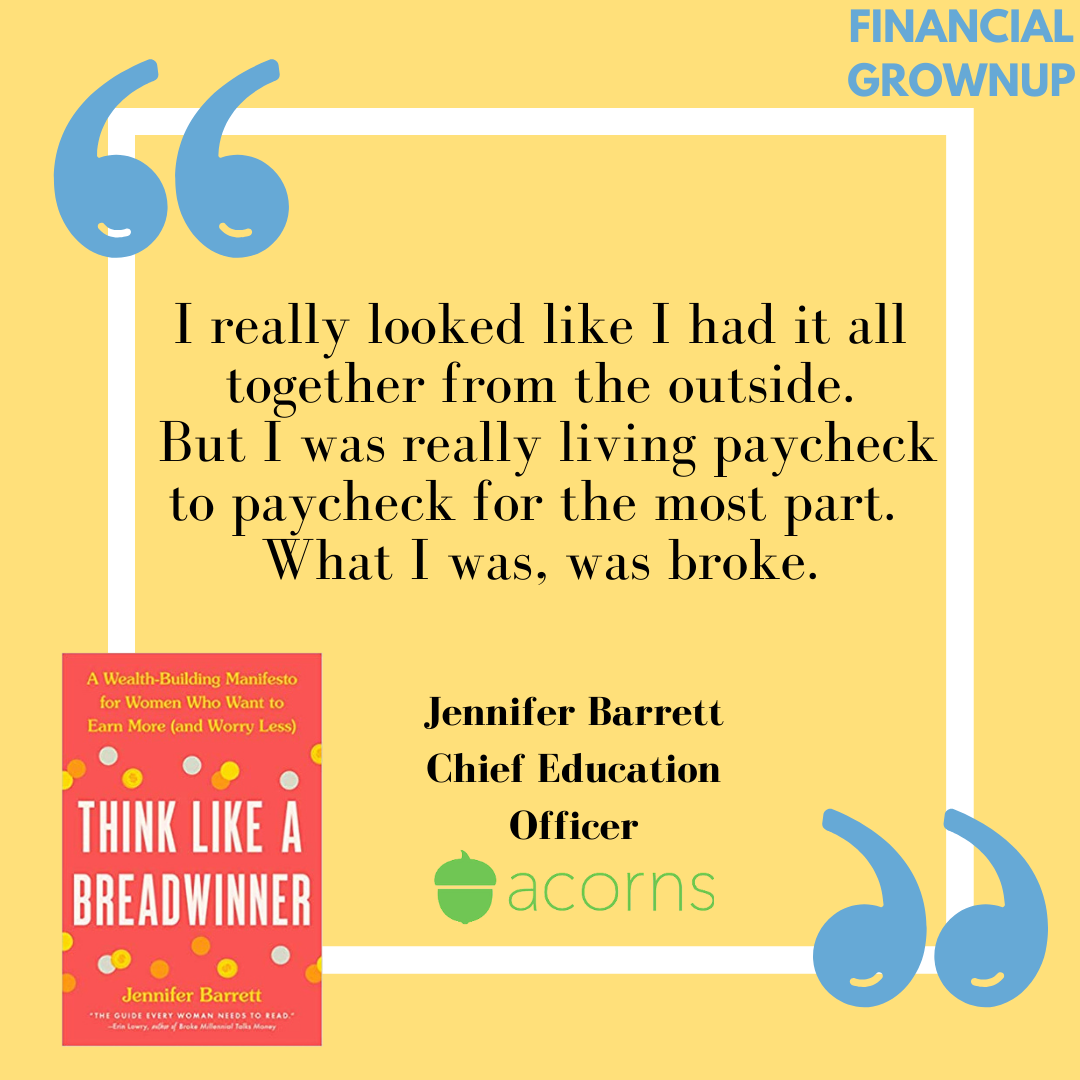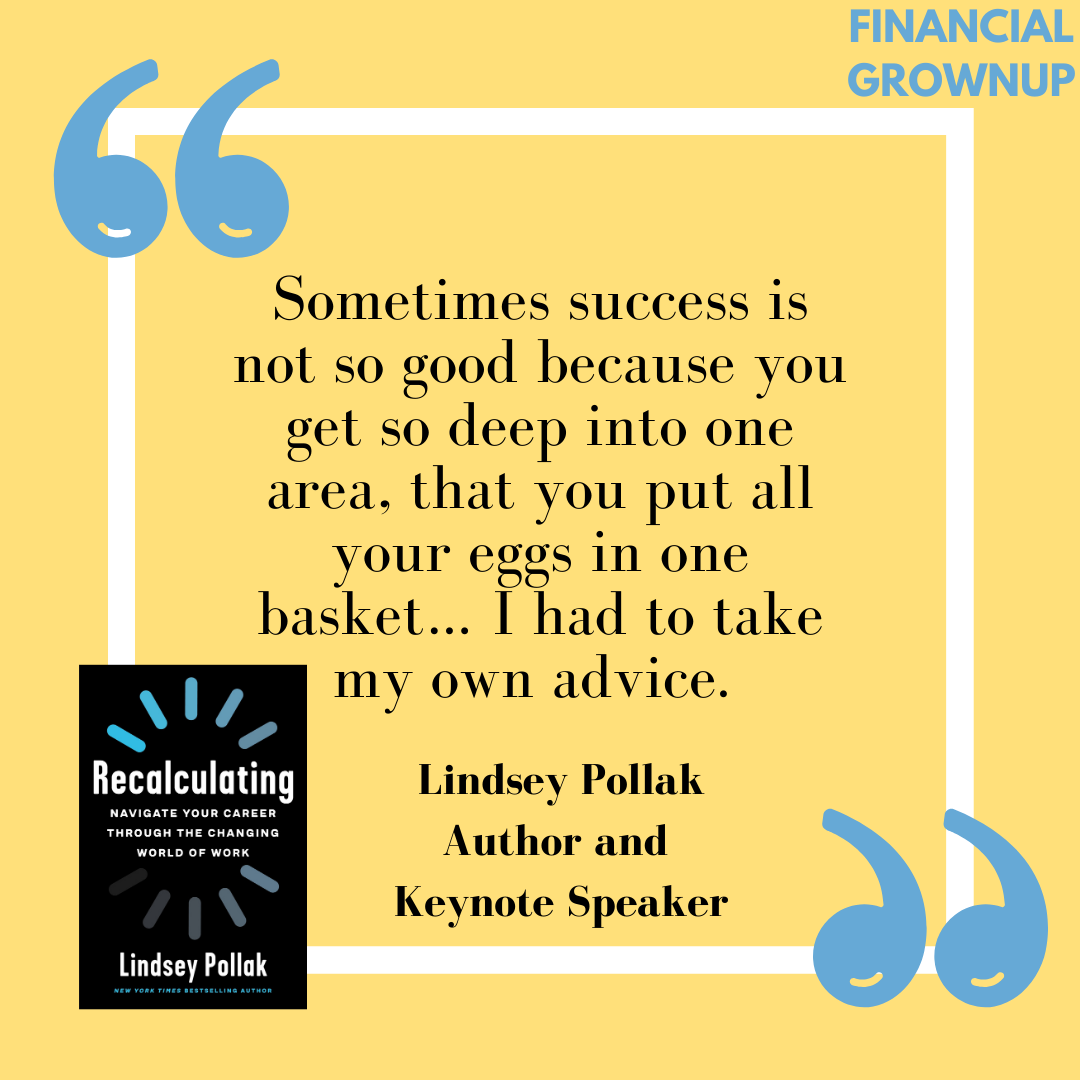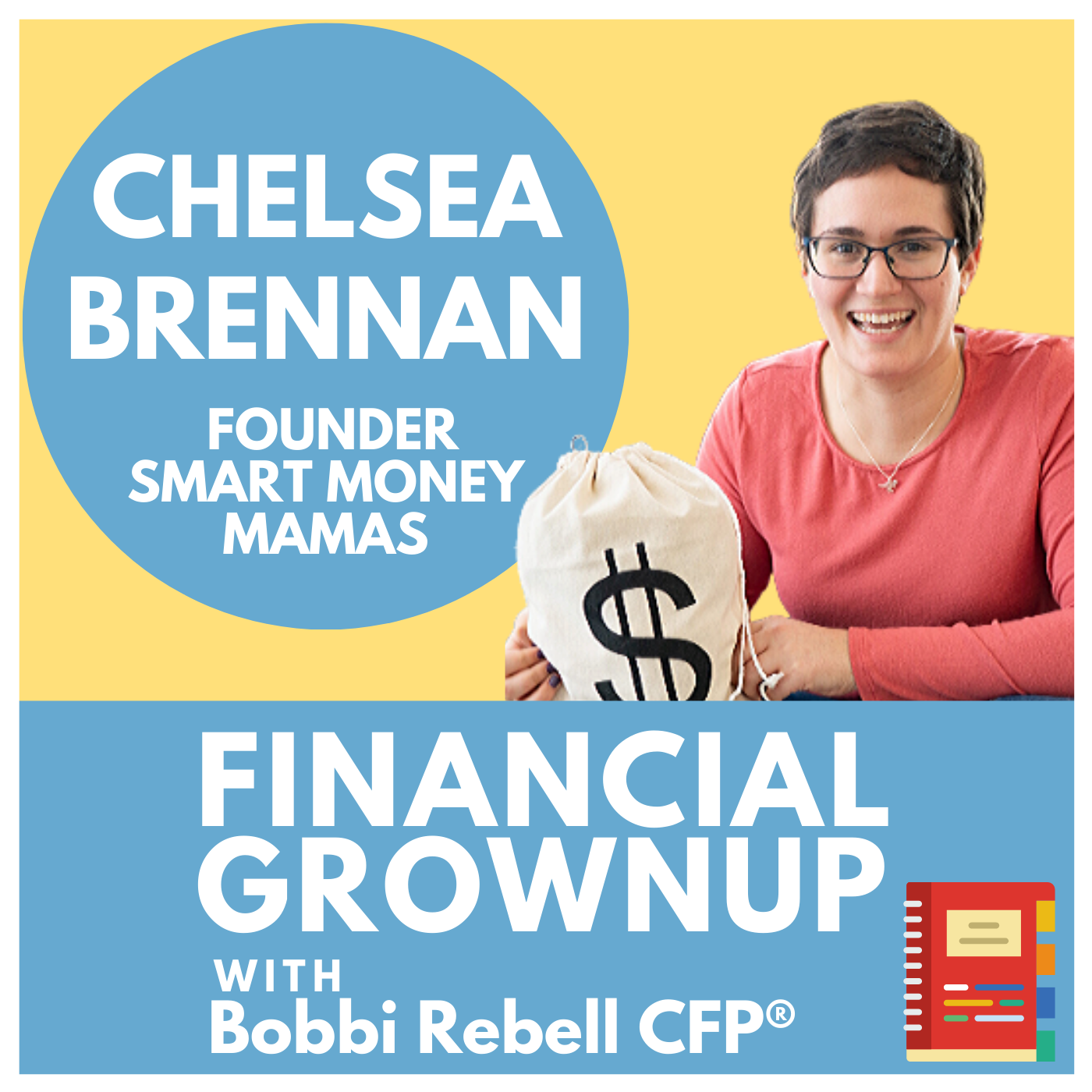Stephanie Uchima-Carney, host of the Mommy’s on a Call podcast shares easy and fun tips for getting kids on the right track to be Financial Grownups
Follow Stephanie!
Instagram - @stephanieuchima
Facebook - @StephanieUchima
Twitter - @StephanieUchima
LinkedIn - @stephanieuchima
Stephanie’s podcast - Mommy’s On A Call
Website - https://www.stephanieuchima.com
Follow Bobbi!
Instagram - @bobbirebell1
Twitter- @bobbirebell
LinkedIn- Bobbi Rebell
Website- http://www.bobbirebell.com
Buy my newest book - Launching Financial Grownups
Did you enjoy the show? We would love your support!
Leave a review on Apple Podcasts or wherever you listen to podcasts. We love reading what our listeners think of the show!
Subscribe to the podcast, so you never miss an episode.
Share the podcast with your family, friends, and co-workers.
Tag me on Instagram @bobbirebell1 and you’ll automatically be entered to win books by our favorite guests and merch from our Grownup Gear shop.
Full Transcript:
Bobbi Rebell:
Hey, grown up friends. A big thank you to so many of you that have already bought my new book, Launching Financial Grownups: Live Your Richest Life by Helping Your Almost Adult Kids Become Everyday Money Smart. This book was not easy to write, because I had to get honest with myself about what was working with my teen and young adult kids and what was not working. And I also had to be prepared to share it with all of you. So, first of all, thank you for your support and your wonderful responses to it. There's definitely some things in there that you may not have been expecting to hear. By the way, I got a lot of help from my money expert friends and also financial therapists and parenting experts. I am really happy with how launching Financial Grownups came out, even though it really was hard to be, like I said, that honest, and it was a lot of work, but I really love doing it. And I'm really happy with how it came out.
Bobbi Rebell:
On that note, if you have not already, please pick up a copy of launching Financial Grownups today. After you do, please share it on social media. Please leave a review on Amazon. Those reviews are super important, because the algorithm picks up on them and that can make the book a lot more visible to more people. So I truly appreciate it. And I really also appreciate all of your support.
Stephanie Uchima-Carney:
It's not that they really wanted that fancy purse because their girlfriend had, it's because they wanted it because they wanted to feel a part of something. And so how can you recreate that sensation and how can you recreate that that makes sense for your family?
Bobbi Rebell:
You're listening to money tips for Financial Grownups with me certified financial planner, Bobbi Rebell, author of launching Financial Grownups, because you know what grown up life is really hard, but together we got this.
Bobbi Rebell:
Haven't we all been there? Seeing something cool that our friends have or hearing about an amazing vacation we would love to go on, but it's not always in our budget. For parents, if that want is coming from our kids, it's tough, but it can also be an opportunity. And that's what we are talking about today with our guest. Stephanie Uchima is a business strategist, wellness coach and the host of the podcast, Mommy's on a Call. She's a mom of three who has learned to leverage those kid-driven wishlist into really effective money lessons. She uses everyday events as well as planned games and experiences to make money lessons real. And her tips are for more than moms.
Bobbi Rebell:
Stephanie and I talk about so many great things, including the stock market game, which she will explain, it's for older kids and getting your kids to open up about what they really want when they ask for expensive things and pricey vacations. The truth is that's not often what they're actually after. Here is Stephanie Uchima. Stephanie Uchima-Carney, you're a financial grownup. Welcome to the podcast.
Stephanie Uchima-Carney:
Thank you for having me, Bobbi.
Bobbi Rebell:
I am a huge fan of your podcast, by the way, which is Mommy's on a Call. You're also a business strategist and a wellness coach. And of course, because your podcast is Mommy's on a Call, you also are the mom of three kids. So welcome.
Stephanie Uchima-Carney:
Thank you for having me. Yes. Three little kids.
Bobbi Rebell:
Three very little kids, one of which was a pandemic baby, so you have your hands full. we recently connected at a conference and we were talking a lot about, because I write about teaching older kids about money, you have a passion for teaching the youngest children about money. And so I asked you to come on here to give some tips to people who may have younger kids in their lives, their own kids maybe, maybe their grandkids, maybe their friends' kids, maybe their nieces and nephews. But I think there's never a time too early when the kid expresses interest to teach a child about money. Tell us more about why you're so interested in this. Have there been things that have come up in your life that have brought this to be top of mind for you?
Stephanie Uchima-Carney:
Yes. Well, so I kind of went on this journey of working on my own money mindset and really thinking about my own personal relationship with money. And I realized a lot of money relates back to your youth, back to your childhood. People have asked, "What's your very first memory of money? And so when I started to do my own reflection on that, I realized, "Wow, my own relationship with money has to do with when I was a very, very little kid." And so if I was a little kid when it shaped the future of my relationship with money as an adult, I need get to start early with my own children, so I don't basically screw them up for the future either. And so thinking about that, I was like, "Okay, let's learn more. I know they're young." So my kids are currently two, almost four and almost seven.
Stephanie Uchima-Carney:
They have play money, they have different things, but how can I start to instill the values and the relationship with money at an early age, so that when they are almost 40 years old going on a money mindset track down memory lane, they don't say, "Oh my goodness. Yeah, my mom and dad really screwed me up in the beginning."
Bobbi Rebell:
How do you teach little kids about money? Do you let them see what's going on on your phone, for example, when you pay for things?
Stephanie Uchima-Carney:
So we actually to just play with play money and I know they've seen Venmo, but they don't really understand what the digital money is. And I honestly think for toddlers and for little kids, that's a little much, but we do have play credit cards. And so my daughters are only two and almost four and they have a Mini Mouse grocery set and we play actual cash, like cash register and grocery. So there's a little cash register on it. It has fake money. It has one for a dollar, five for a five little coins and we go through it. I'm like, "I want eggs. The eggs are a dollar. Here's my money." I give it to them and they give it back or they understand that there's an exchange. And I always say, "It's not just money for something, it's also an energy exchange."
Stephanie Uchima-Carney:
So I go on it on two different ways. And I know that could sound a little woo. But I always say, "Money is just an exchange for the value you're giving me. Money is exchanged for a product, money's exchange for a service." We use money as a universal tool to help get different things. And so they have two cash registers. They have a learning resources, one, a mini mouse one, and we literally just play. So my big thing is teaching toddlers and little kids is to do it through play. So have them have their own little wallet with their own fake credit card. And sometimes I'll say, "Oh, I don't think you can buy that today. You need to make a choice between these two items, because you only have $5 and this one's $8 and this one's $1. You can get five of these." We play.
Bobbi Rebell:
How do you do that with the credit card? Do you teach them that they have to pay it in full at the end of the month? How does that work? Do you come back to it on a different day? Do you teach them about interest and what would happen if they had a late payment? How far can you take it, especially for your almost seven year old.
Stephanie Uchima-Carney:
So the seven year old, that's funny, because for a while he was like, "Oh, just charge it," or, "Just put it on that." And I looked at him and I said, "Honey, what do you think happens once you give this magical card?" Especially like Amazon, for example, because everything is one touch. He's like, "Just buy that on Amazon." And I'm like, "Oh, I can just buy it. It magically appears, but then what?" Then how does that work? And so we do. We talk to him about the concept of "It's not just magic. It doesn't just appear. There's a cost for things. And so if you want that, it's going to be this amount. And even though you give this magical thing and it happens, it still has to come from somewhere." And so it's really hard. It's easier when it's physical. I think it's really hard, at least personally, to teach them digital. But we also love using manipulatives and he loves math. So that's helpful is that he loves math.
Stephanie Uchima-Carney:
So anytime he goes to a store, he'll look at different numbers and prices of things and we'll play games like, "What's that plus that?" Or, "If I bought two of those, how much would it be?" And so we play around with that to help also academically.
Bobbi Rebell:
You also play the stock market game, so they can learn to invest with play money. And that actually is all online.
Stephanie Uchima-Carney:
So that's for older kids. So a little side note is I substitute taught sixth grade math for fun. I was actually a math major back in college, but never pursued that route. Recently, someone asked if I would substitute teach sixth grade and I said, "Why not? It'd be fun." And they're like, "Oh, and they have this thing called the stock project." So this is more for 11 year olds and 12 year olds. And I was like, "Oh, what's this?" And I started to research it and play it with them. And I think it's such a fun tool for probably 10 to 12 year olds is the stock market game. They were telling me, I was asking them questions. I was like, "Which stocks are you buying? Why are you buying that? What's interesting about that. Okay. If you decide to sell that," and it's really fun, that's all online. But it's a good resource because they can play with their play money. And when they lose, they understand that, because they can see the charts in front of them.
Stephanie Uchima-Carney:
And so I think that's a good tool. Also introducing them to what stocks are. What is investing? What does this mean outside of the way money works just in your house, how money can be invested and why companies need money and how that all works?
Bobbi Rebell:
You also talk a lot about how you can get your kids interested in savings and in automated savings and things like that. Talk about that and your unique approach to that.
Stephanie Uchima-Carney:
My kids still right now aren't really intrinsically motivated by money. They don't still really understand. Like my son, for example, his birthday's coming up. He's like, "I want this Pokemon thing." And so he has a little piggy bank. We go old school here. And he saved his tooth fairy money. He saved his birthday gift money. And then also I said, "You know what, instead of just leaving it here in your piggy bank, mommy's going to take that and we're going to open up a bank account for you."
Bobbi Rebell:
What's your advice to parents whose kids come home from school or whatever activities they have and, especially as we're hopefully emerging from the pandemic, parents are finally taking those trips that they put off for so long. You asked me this question now I'm putting it right back at you. And they hear about, for example, to use your example, they hear about their friend going to Hawaii. What do you do to your kid that comes home and asks mom, "Can we go on this trip that my friend is going on? We should do that too." And it's not that they're necessarily materialistic. They don't even necessarily know. But how do you manage that?
Stephanie Uchima-Carney:
You're putting me on the spot now on my own question. The way I look at it is today, my son actually said, "I want to go to Hawaii to go rock climbing." And I looked at him and I said, "Rock climbing? What do you mean? We never have been rock climbing in Hawaii." He's like, "Remember that time we climbed on rocks?" I was like, "You mean in Joshua Tree?" I was like, "So you don't actually want to go to Hawaii. You just want the experience of rock climbing? Well, let's look at other places that we can drive to that's close that you can do that." I know a lot of kids are going on trips, especially like Disneyland or things like that. "Why does he get to go? Why don't I get to go?" And I always say kind of like what you say is "Our family makes different choices and we choose for our family and what's best for our family. And so this time we think it's fun since you guys have never been to," I think, well, we're going to a summer camp.
Stephanie Uchima-Carney:
"Since you guys have never been water skiing and things like that, we decided instead of doing something you've done before, we're going to choose something different. And it'll be a fun experience with the family." I always like to get at the root of what they really want. So maybe they didn't actually want that physical item or maybe they actually didn't want the trip to Hawaii. Maybe they really just wanted family time together. Sometimes we'll come back from a trip. And I'll ask. We went for spring break somewhere and I was like, "What was the best part of the trip?" And he looked at me and said, "Mommy and daddy were here with me for a week." I was like, "Yeah." So we could have been anywhere. We could have literally been home.
Stephanie Uchima-Carney:
And so it's what do they really want? And same with even when they're young, when they're toddlers. All they really want is to know that they're loved, that they are accepted for who they are. They just want to feel that comfort. And so materialistic money, all that aside, there's a root at what they want. So if they want an item, because they want to feel included, that's a different emotion. And so now you can address the inclusion part. It's not that they really wanted that fancy purse, because their girlfriend had. It's because they wanted it, because they wanted to feel a part of something. And so how can you recreate that sensation and how can you recreate that that makes sense for your family.
Bobbi Rebell:
I love the way you frame that. Tell us quickly about Mommy's on a Call. Because I love this, this is my new obsession, this podcast.
Stephanie Uchima-Carney:
Well, what happened was, is I had a podcast originally called Power Mom Minute and I wanted to interview all the successful moms in business, because I was very curious how they did it behind the scenes. How do you run a company and yet be a mom, because that was my aspiration to do. So I started this podcast and then got pregnant with a third kid, put it on hold, COVID hit. And in the middle of COVID, I needed an outlet and I was still curious, "What's going on in the world of moms?" I was on a phone call and my son was shooting a Spider-Man dart at me. I had a newborn that I was breastfeeding and I literally screamed out loud, "Mommy's on a call. Everyone, be quiet." I was like, "Huh." And the person on the Zoom was like, "That's your podcast name." And I was like, "That's perfect."
Stephanie Uchima-Carney:
So it's a play on two things. Mommy's on a call, like "Go away." We're just going to figure out what's the behind the scenes of moms in business, career. And also mommy's on a call with different aspects of themselves. So I'm really big into multidimensional wellness. So that's not just health and or that's not just physical, emotional, mental. It's also financial. It's also career, which is occupational, environmental. And so mommy's on a call with different parts of the herself and her identity. So talking to you, mommy's on a call with finances and how can we better our financial future and our children's financial future. Or mommy's on a call with her health. And so I might interview someone on intermittent fasting or hormone health, because I'm personally curious. I want to see how you experts do it all.
Bobbi Rebell:
Well, I loved being on your show. I hope everyone checks out Mommy's on a Call. Where else can people find out more about you?
Stephanie Uchima-Carney:
You can go to mommysonacall.com. You can find me on Instagram, TikTok, Twitter. It's all under Stephanie Uchima, that's U-C-H-I-M-A and follow me along there. I talk about all things motherhood and wellness.
Bobbi Rebell:
Thank you so much.
Stephanie Uchima-Carney:
Thank you for having me, Bobbi.
Bobbi Rebell:
The advice at the end of the interview about vacations is so on point to what is going on these days with travel. It's not only getting ridiculously expensive, it is also so difficult, it may honestly just not be worth it. So drill down with your kids when they're saying, "We want to go away." And by the way, this goes for your partner or your friends or whoever you will be traveling with and figure out if there's a way to get the same experience or a similar experience or a good enough experience, whether it's rock climbing, or just spending time together without the hefty price tag and not to be overlooked, the hassle factor. One thing that is hassle-free is getting the show notes and full transcripts to this podcast. Both are available right on my website, which is my name. So it's just bobbirebell.com, B-O-B-B-I-R-E-B-E-L-L .com. My newsletter is also available to subscribe to right on my website. Links to all of that in the show notes attached to the podcast, but also again on my website.
Bobbi Rebell:
Thank you for investing the time to listen to this podcast. One thing I am asking in return and it's super easy and it's also free is to take just two more minutes to review my book, Launching Financial Grownups on Amazon. And, yes, the link to review this book on Amazon will be in the show notes, but you can also just find it by going to Amazon, finding the book and scrolling down, and finding where to review it. I am trying to get to 100 reviews and let me tell you, it's not easy. So if you do put a review on that page for me, it is noticed and it is appreciated. Your one review matters a lot to help me get to that goal. So thank you truly. I really appreciate it, guys.
Bobbi Rebell:
And please of course share it with me on social media. If you do review the book or just if you the podcast, please help share it. Help me increase my listeners, grow the community. DM on Instagram, @bobbirebell1, and on Twitter, @bobbirebell. And also check out my new TikTok channel. Is that what it's called? Is it a channel? I'm not sure, but I'm posting a lot of videos of me doing local news hits, which is super fun, because I'm giving advice about battling inflation and saving money and so on. And you guys seem to like them, so I love sharing them and I would love to hear from you there. And, of course, make sure you are subscribed not just to this podcast, but to Stephanie's Mommy's on a Call podcast. It's a great one. And big thanks to Stephanie Uchima for helping us all be Financial Grownups.
Bobbi Rebell:
Money Tips for Financial Grownups is a production of BRK Media, LLC. Editing and production by Steve Stewart, guest coordination, content creation, social media support and show notes by Ashley Wall. You can find the podcast show notes, which include links to resources mentioned in the show, as well as show transcripts, by going to my website, bobbirebell.com. You can also find an incredible library of 100s of previous episodes to help you on your journey as a financial grownup. The podcast and tons of complimentary resources associated with the podcast is brought to you for free, but I need to have your support in return. Here's how you can do that. First, connect with me on social media, @bobbirebell1 on Instagram and Bobbi Rebell on both Twitter and on Clubhouse, where you can join my money tips for grownups club. Second, share this podcast on social media and tag me, so I can thank you.
Bobbi Rebell:
You can also leave a review on Apple Podcasts. Reading each one means the world to me. And you know what? It really motivates others to subscribe. You can also support our merch shop grownupgear.com by picking up fun gifts for your grownup friends and treating yourself as well. And most of all, help your friends on their journey to being Financial Grownups by encouraging them to subscribe to the podcast. Together, we got this. Thank you for your time and for the kind word so many of you send my way. See you next time and thank you for supporting Money Tips for Financial Grownups.



